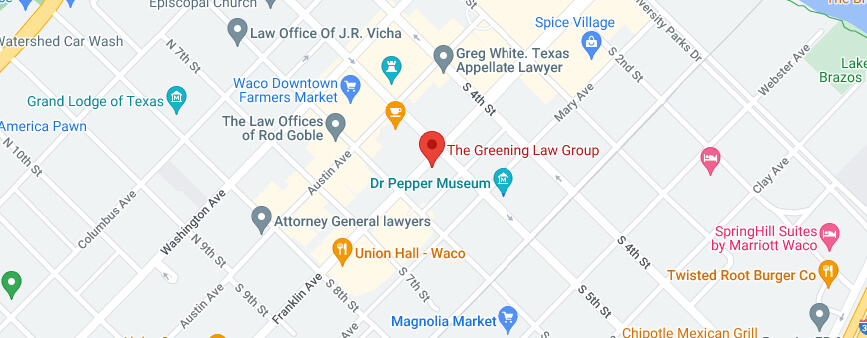The legal drinking age in Texas is 21, and if you are not 21 you can be charged if you are caught with alcohol. Some of the most common alcohol offenses are Minor in Possession of Alcohol and Minor in Consumption of Alcohol. These are found in Chapter 106 of the Texas Alcoholic Beverage Code. Both of these cases are Class C misdemeanors. For context, they are the same level offense as traffic tickets. Class C tickets are the lowest level offense in Texas. These cases are most commonly filed in the municipal court of the city or one of the justice of the peace courts in the county.
Minor in Possession and Minor in Consumption are relatively straightforward. The most common way someone is ticketed for minor in possession is when the officer sees the person holding an alcoholic beverage. It is also possible to be charged if there are alcoholic beverages on the table in front of the minor or in their vicinity. Possession means care, custody, control, or management of the item. You do not have to have been the person who purchased the drink to be charged with Minor In Possession. Unlike other criminal charges, this type of case does not require any particular mental state. In other words, you don’t have to know or intend to possess the alcohol. It is enough to be the person holding the drink. A knowledge defense can be raised, but knowledge is not an element that the prosecutor is required to prove.
Alternatively, minor in consumption is alleged when an officer sees or believes the minor has actually ingested alcohol. As with minor in possession, there is no element of intent required to be guilty of this offense. An officer can give you a breathalyzer to confirm the presence of alcohol, but these tickets are most often given when the officer actually witnesses the minor consume alcohol.
It is a defense to both of these tickets if you are with and under the direct supervision of your parent or guardian. Minors may physically possess alcohol if it is within the scope of their employment as a server and the bar or restaurant is properly licensed.
The most common way to resolve these tickets is with deferred adjudication probation. Deferred adjudication probation is probation without being convicted. While on probation for a Class C ticket of this nature you are not required to report to a probation officer.
Unlike traffic tickets, these cases carry additional penalties related to alcohol safety. When you plead guilty or no contest to one of these offenses, the law requires you to complete an alcohol awareness class and a certain number of community service hours. For first time offenders, the requirement is not less than 8 hours and not more than 12 hours. You will not have a driver’s license suspension as a result of deferred adjudication on your first offense.
Upon the successful completion of deferred adjudication, the ticket is dismissed by the Court. This dismissal does not remove the ticket from your record. An expunction is a court order which orders the destruction of all records related to the ticket. To qualify for an expunction, 180 days must have passed since you received your ticket AND you must have successfully completed the deferred adjudication. Once the expunction is granted, you may legally deny you were ever charged with the ticket.
Should you have questions about your specific case or eligibility for an expunction, please consult with your attorney.
About the Author
As the first attorney to join Craig at The Greening Law Group, Sarah Wilkinson has now been a part of the team for 6 years. In her position, she is responsible for managing a caseload of clients, reviewing and analyzing discovery, communicating with clients, prosecutors, expert witnesses, and court staff, preparing cases for trial, and writing blogs for the website. She is dedicated to providing superior representation and communication to her clients and helping them through the most difficult time of their lives.










